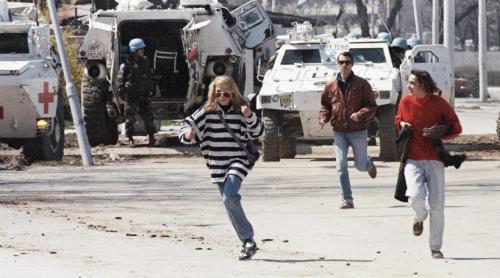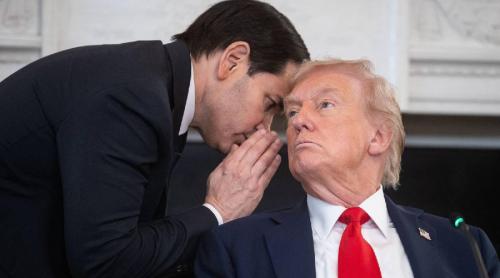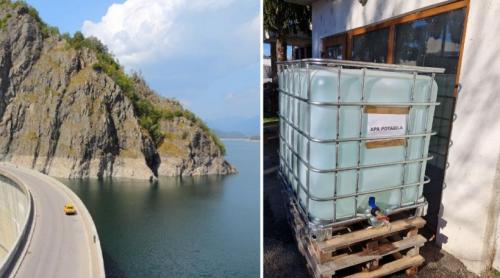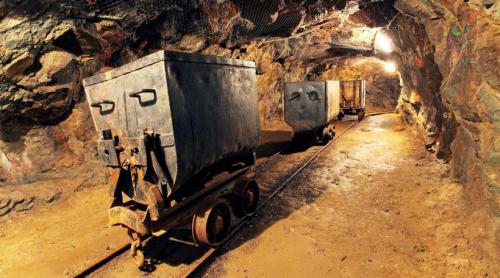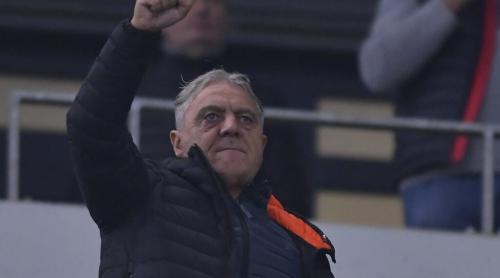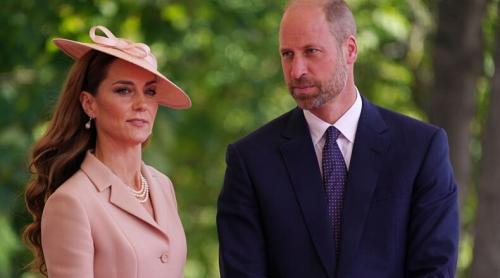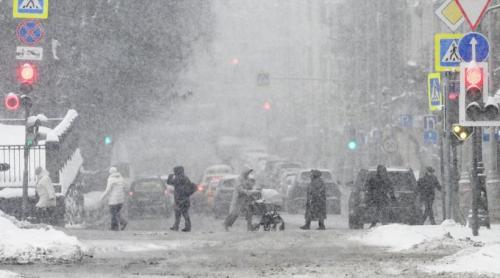
For the Balkans, the Summit’s decisions represent the source of a new threat, a consequence of the possible crash between the Albanese, Macedonian, Serbian and even Greek ethnical and cultural fundamentals that they stimulated
Albania considers the NATO Summit in Buchaest a success. Macedonia surely considers it a failure. For the Balkans, the Summit’s decisions represent the source of a new threat, a consequence of the possible crash between the Albanese, Macedonian, Serbian and even Greek ethnical and cultural fundamentals that they stimulated. The Caucasians concluded that hard times would come in the near future. For Ukraine, the Summit brought the hope for a solid national emancipation back due to the integration in a Euro-Atlantic family that resulted in the fact that the country’s unity and security will be found in the EU reforms, but not in the exaltation of the Orange revolution. The future of the Ukraine-NATO relations will depend less on the oracular formulas than on the tactical aspects of the future American and Ukrainian administrations.
The members who have to deal with non-conventional attacks that are not touched by the discouragement methods used in the Cold War see the Summit as a confirmation of the fact that even if security is indivisible, the American umbrella is partial. This reveals the fact that we are dealing with less engagement of the USA, which can result in a separation of the European security strategies from the transatlantic ones. Actually, it has been decided that the ones that were not covered by the anti-missile shield installed based on certain bilateral agreements with Washington can build their own compatible shields. Who will provide the money or the technology for that? NATO does not finance projects in the way the EU does. Therefore, the ones that feel vulnerable should find financial sources to defend themselves “in common”. Since technologies are absent as well, they will have to be bought from the Americans. Therefore, there are a lot of reasons to postpone the use of the complementary shield until the appearance of a “European security and defense identity”.
There are people who say President Bush is successful. Actually, the European opposition has never been as present as it was in the moment in which it promoted the thesis of creating a distinct European defense capacity, which the French support so much. The British say that this is a way to balance the burden of defending the Atlantic, but the Germans thought it would be the base of a Russian- European coalition. This is the historical significance of the decisions taken during this summit: the Europeanization of NATO. Washington’s victory is less important since it didn’t quite need the agreement of the European countries to install it, but is very important when we think about the promise that the European shield will take into consideration the indivisible character of the euro-Atlantic security, which allows America to intervene in the European defense strategy. However, the real value of such a right depends on the French-German devil hidden in the details of the “complementary” project of the Europeans. Anyway, we are yet to see the real advantages of this separation of the Alliance for NATO and its members on the Oriental frontier since the American participation will only mean a certain level of supervising.
In 1997, in Madrid, the USA took the decision for all the allies that supported a robust extension. In 2008, in Bucharest, the USA had to accept the other decisions and to agree with a small extension. This shows the loss in authority for the USA as well as the fact that it is less interested in NATO. This is why we could say we had a sommet, but not a summit in Bucharest. “The constructive ambiguities” of the decisions taken, in spite of all the European clauses, show the fact that the Alliance rejects the idea of “NATO-centrism”, promoted by the USA, as well as the thesis of “the right to veto for Kremlin”, which Russia asked for. This is why we can call the summit at Soci “the summit of the ones that got refused”.
However, the most important NATO issue was discussed there. NATO is global or no more, an issue that the Summit in Bucharest didn’t treat as it should have: the model of cooperation for global defense in a multi-polar world order. The meeting in Bucharest was no more than mediocre. This is how the summit in Soci opened the way for a historical transformation. However, I am afraid that this summit meant the fact that the important issues are still discussed between the White House and Kremlin, because the European pond is no longer important. Brussels only takes care of the receptions.



